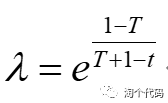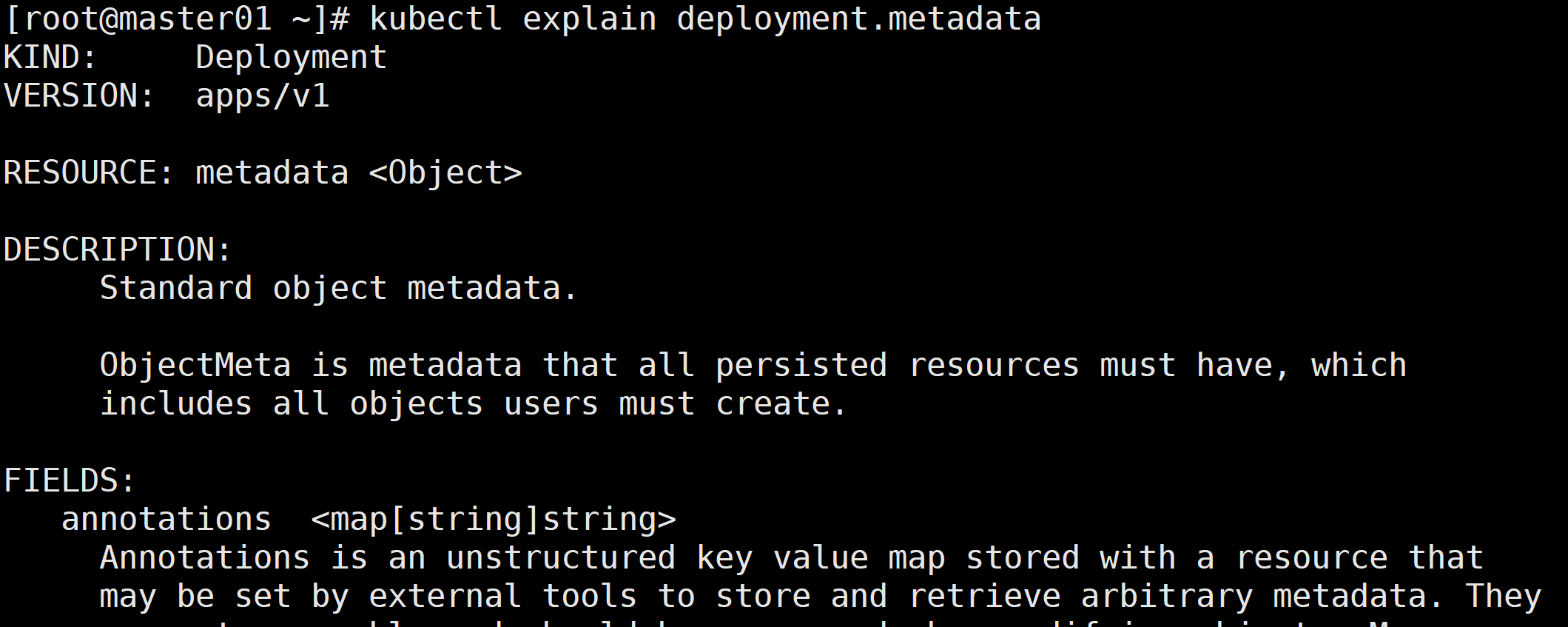0. 其实也没有那么入门
明天还要上班,速度write,直接放一张多样性比较好的 spring.factories 文件(取自 spring-boot-2.3.4.RELEASE.jar)
# PropertySource Loaders
org.springframework.boot.env.PropertySourceLoader=\
org.springframework.boot.env.PropertiesPropertySourceLoader,\
org.springframework.boot.env.YamlPropertySourceLoader
# Run Listeners
org.springframework.boot.SpringApplicationRunListener=\
org.springframework.boot.context.event.EventPublishingRunListener
# Error Reporters
org.springframework.boot.SpringBootExceptionReporter=\
org.springframework.boot.diagnostics.FailureAnalyzers
# Application Context Initializers
org.springframework.context.ApplicationContextInitializer=\
org.springframework.boot.context.ConfigurationWarningsApplicationContextInitializer,\
org.springframework.boot.context.ContextIdApplicationContextInitializer,\
org.springframework.boot.context.config.DelegatingApplicationContextInitializer,\
org.springframework.boot.rsocket.context.RSocketPortInfoApplicationContextInitializer,\
org.springframework.boot.web.context.ServerPortInfoApplicationContextInitializer
# Application Listeners
org.springframework.context.ApplicationListener=\
org.springframework.boot.ClearCachesApplicationListener,\
org.springframework.boot.builder.ParentContextCloserApplicationListener,\
org.springframework.boot.cloud.CloudFoundryVcapEnvironmentPostProcessor,\
org.springframework.boot.context.FileEncodingApplicationListener,\
org.springframework.boot.context.config.AnsiOutputApplicationListener,\
org.springframework.boot.context.config.ConfigFileApplicationListener,\
org.springframework.boot.context.config.DelegatingApplicationListener,\
org.springframework.boot.context.logging.ClasspathLoggingApplicationListener,\
org.springframework.boot.context.logging.LoggingApplicationListener,\
org.springframework.boot.liquibase.LiquibaseServiceLocatorApplicationListener
# Environment Post Processors
org.springframework.boot.env.EnvironmentPostProcessor=\
org.springframework.boot.cloud.CloudFoundryVcapEnvironmentPostProcessor,\
org.springframework.boot.env.SpringApplicationJsonEnvironmentPostProcessor,\
org.springframework.boot.env.SystemEnvironmentPropertySourceEnvironmentPostProcessor,\
org.springframework.boot.reactor.DebugAgentEnvironmentPostProcessor
# Failure Analyzers
org.springframework.boot.diagnostics.FailureAnalyzer=\
org.springframework.boot.context.properties.NotConstructorBoundInjectionFailureAnalyzer,\
org.springframework.boot.diagnostics.analyzer.BeanCurrentlyInCreationFailureAnalyzer,\
org.springframework.boot.diagnostics.analyzer.BeanDefinitionOverrideFailureAnalyzer,\
org.springframework.boot.diagnostics.analyzer.BeanNotOfRequiredTypeFailureAnalyzer,\
org.springframework.boot.diagnostics.analyzer.BindFailureAnalyzer,\
org.springframework.boot.diagnostics.analyzer.BindValidationFailureAnalyzer,\
org.springframework.boot.diagnostics.analyzer.UnboundConfigurationPropertyFailureAnalyzer,\
org.springframework.boot.diagnostics.analyzer.ConnectorStartFailureAnalyzer,\
org.springframework.boot.diagnostics.analyzer.NoSuchMethodFailureAnalyzer,\
org.springframework.boot.diagnostics.analyzer.NoUniqueBeanDefinitionFailureAnalyzer,\
org.springframework.boot.diagnostics.analyzer.PortInUseFailureAnalyzer,\
org.springframework.boot.diagnostics.analyzer.ValidationExceptionFailureAnalyzer,\
org.springframework.boot.diagnostics.analyzer.InvalidConfigurationPropertyNameFailureAnalyzer,\
org.springframework.boot.diagnostics.analyzer.InvalidConfigurationPropertyValueFailureAnalyzer
# FailureAnalysisReporters
org.springframework.boot.diagnostics.FailureAnalysisReporter=\
org.springframework.boot.diagnostics.LoggingFailureAnalysisReporter
本文主要从几个简单、常见的 springFactoriesInstance 说起,暂时不会覆盖所有的
1. ApplicationContextInitializer
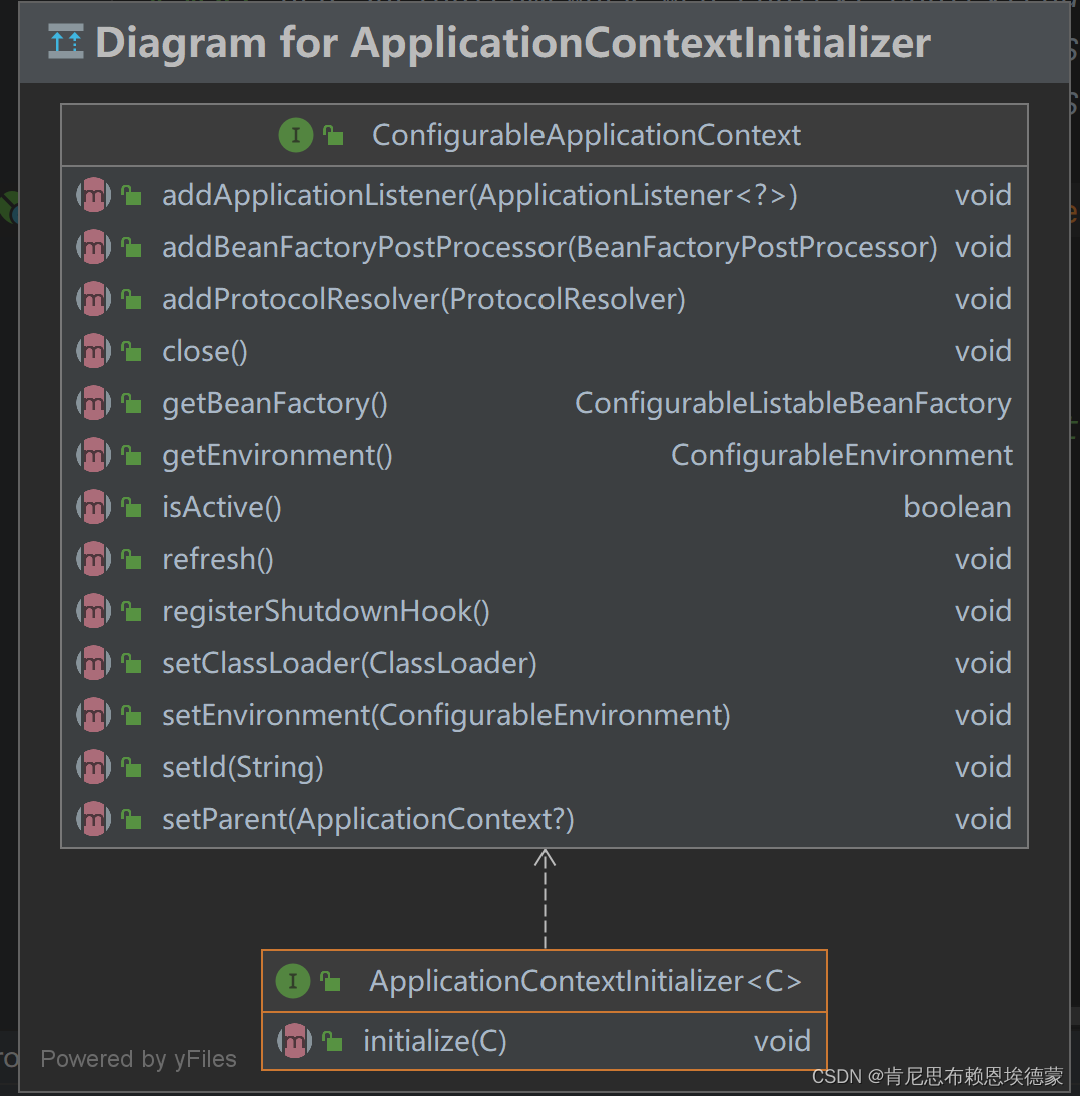
1.1 注册
顺路注释了 事件监听器 相关的注册、应用方法
// org.springframework.boot.SpringApplication#SpringApplication(org.springframework.core.io.ResourceLoader, java.lang.Class<?>...)
public SpringApplication(ResourceLoader resourceLoader, Class<?>... primarySources) {
this.resourceLoader = resourceLoader;
Assert.notNull(primarySources, "PrimarySources must not be null");
this.primarySources = new LinkedHashSet<>(Arrays.asList(primarySources));
this.webApplicationType = WebApplicationType.deduceFromClasspath();
// step into ...
// 在构造的时候注册,可见优先级之高
// 就是将方法返回的结果直接赋值而已
setInitializers((Collection) getSpringFactoriesInstances(ApplicationContextInitializer.class));
// 应用监听器也在这里,并且调用路径完全一致
setListeners((Collection) getSpringFactoriesInstances(ApplicationListener.class));
this.mainApplicationClass = deduceMainApplicationClass();
}
-------------
// org.springframework.boot.SpringApplication#getSpringFactoriesInstances(java.lang.Class<T>)
private <T> Collection<T> getSpringFactoriesInstances(Class<T> type) {
// step into ...
return getSpringFactoriesInstances(type, new Class<?>[] {});
}
private <T> Collection<T> getSpringFactoriesInstances(Class<T> type, Class<?>[] parameterTypes, Object... args) {
ClassLoader classLoader = getClassLoader();
// Use names and ensure unique to protect against duplicates
Set<String> names = new LinkedHashSet<>(SpringFactoriesLoader.loadFactoryNames(type, classLoader));
List<T> instances = createSpringFactoriesInstances(type, parameterTypes, classLoader, args, names);
AnnotationAwareOrderComparator.sort(instances);
return instances;
}
1.2 应用
/*
* Copyright 2002-2018 the original author or authors.
*
* Licensed under the Apache License, Version 2.0 (the "License");
* you may not use this file except in compliance with the License.
* You may obtain a copy of the License at
*
* https://www.apache.org/licenses/LICENSE-2.0
*
* Unless required by applicable law or agreed to in writing, software
* distributed under the License is distributed on an "AS IS" BASIS,
* WITHOUT WARRANTIES OR CONDITIONS OF ANY KIND, either express or implied.
* See the License for the specific language governing permissions and
* limitations under the License.
*/
package org.springframework.context;
/**
* Callback interface for initializing a Spring {@link ConfigurableApplicationContext}
* prior to being {@linkplain ConfigurableApplicationContext#refresh() refreshed}.
*
* <p>Typically used within web applications that require some programmatic initialization
* of the application context. For example, registering property sources or activating
* profiles against the {@linkplain ConfigurableApplicationContext#getEnvironment()
* context's environment}. See {@code ContextLoader} and {@code FrameworkServlet} support
* for declaring a "contextInitializerClasses" context-param and init-param, respectively.
*
* <p>{@code ApplicationContextInitializer} processors are encouraged to detect
* whether Spring's {@link org.springframework.core.Ordered Ordered} interface has been
* implemented or if the @{@link org.springframework.core.annotation.Order Order}
* annotation is present and to sort instances accordingly if so prior to invocation.
*
* @author Chris Beams
* @since 3.1
* @param <C> the application context type
* @see org.springframework.web.context.ContextLoader#customizeContext
* @see org.springframework.web.context.ContextLoader#CONTEXT_INITIALIZER_CLASSES_PARAM
* @see org.springframework.web.servlet.FrameworkServlet#setContextInitializerClasses
* @see org.springframework.web.servlet.FrameworkServlet#applyInitializers
*/
public interface ApplicationContextInitializer<C extends ConfigurableApplicationContext> {
// 它发挥作用的地方就这一个了
/**
* Initialize the given application context.
* @param applicationContext the application to configure
*/
void initialize(C applicationContext);
}
-----------------
// org.springframework.boot.SpringApplication#run(java.lang.String...)
public ConfigurableApplicationContext run(String... args) {
StopWatch stopWatch = new StopWatch();
stopWatch.start();
ConfigurableApplicationContext context = null;
Collection<SpringBootExceptionReporter> exceptionReporters = new ArrayList<>();
configureHeadlessProperty();
SpringApplicationRunListeners listeners = getRunListeners(args);
listeners.starting();
try {
ApplicationArguments applicationArguments = new DefaultApplicationArguments(args);
ConfigurableEnvironment environment = prepareEnvironment(listeners, applicationArguments);
configureIgnoreBeanInfo(environment);
Banner printedBanner = printBanner(environment);
context = createApplicationContext();
exceptionReporters = getSpringFactoriesInstances(SpringBootExceptionReporter.class,
new Class[] { ConfigurableApplicationContext.class }, context);
// step into ...
// 就在初始化之前!
prepareContext(context, environment, listeners, applicationArguments, printedBanner);
// 可以作为参照点,大家都再熟悉不过了
refreshContext(context);
afterRefresh(context, applicationArguments);
stopWatch.stop();
if (this.logStartupInfo) {
new StartupInfoLogger(this.mainApplicationClass).logStarted(getApplicationLog(), stopWatch);
}
listeners.started(context);
callRunners(context, applicationArguments);
}
catch (Throwable ex) {
handleRunFailure(context, ex, exceptionReporters, listeners);
throw new IllegalStateException(ex);
}
try {
listeners.running(context);
}
catch (Throwable ex) {
handleRunFailure(context, ex, exceptionReporters, null);
throw new IllegalStateException(ex);
}
return context;
}
-------------
// org.springframework.boot.SpringApplication#prepareContext
private void prepareContext(ConfigurableApplicationContext context, ConfigurableEnvironment environment,
SpringApplicationRunListeners listeners, ApplicationArguments applicationArguments, Banner printedBanner) {
context.setEnvironment(environment);
postProcessApplicationContext(context);
// step into ...
// 也算见名知意
applyInitializers(context);
listeners.contextPrepared(context);
if (this.logStartupInfo) {
logStartupInfo(context.getParent() == null);
logStartupProfileInfo(context);
}
// Add boot specific singleton beans
ConfigurableListableBeanFactory beanFactory = context.getBeanFactory();
beanFactory.registerSingleton("springApplicationArguments", applicationArguments);
if (printedBanner != null) {
beanFactory.registerSingleton("springBootBanner", printedBanner);
}
if (beanFactory instanceof DefaultListableBeanFactory) {
((DefaultListableBeanFactory) beanFactory)
.setAllowBeanDefinitionOverriding(this.allowBeanDefinitionOverriding);
}
if (this.lazyInitialization) {
context.addBeanFactoryPostProcessor(new LazyInitializationBeanFactoryPostProcessor());
}
// Load the sources
Set<Object> sources = getAllSources();
Assert.notEmpty(sources, "Sources must not be empty");
load(context, sources.toArray(new Object[0]));
listeners.contextLoaded(context);
}
----------------
// org.springframework.boot.SpringApplication#applyInitializers
protected void applyInitializers(ConfigurableApplicationContext context) {
for (ApplicationContextInitializer initializer : getInitializers()) {
Class<?> requiredType = GenericTypeResolver.resolveTypeArgument(initializer.getClass(),
ApplicationContextInitializer.class);
Assert.isInstanceOf(requiredType, context, "Unable to call initializer.");
// 循环执行其方法,这也不出意外
// 外部集成实现的Initializer 多是 这这里注册 ApplicationListener 有意思吧
// 也算是一种"另类的" 注册 ApplicationListener 的方式
initializer.initialize(context);
}
}
2. ApplicationListener
spring的事件传播机制,其实很简单
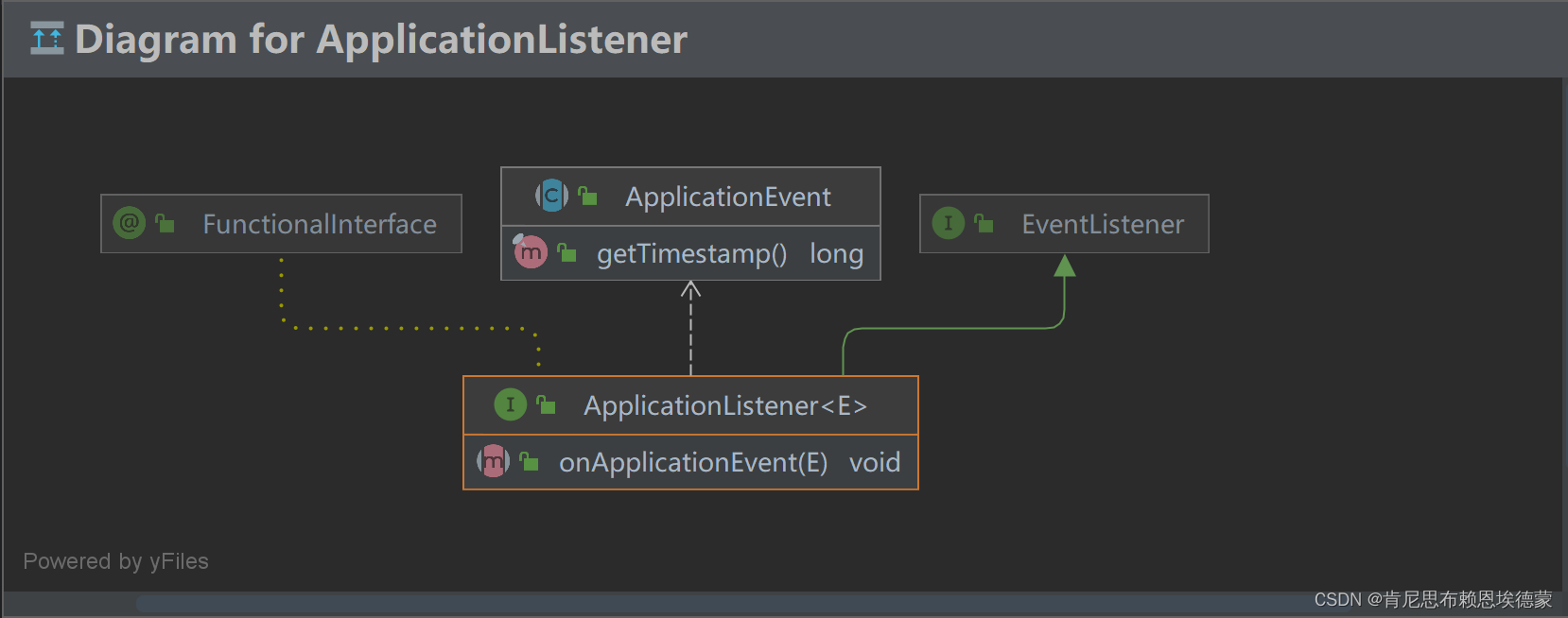
2.1 AbstractEventMulticaster
索性把相关类都给枚举一下
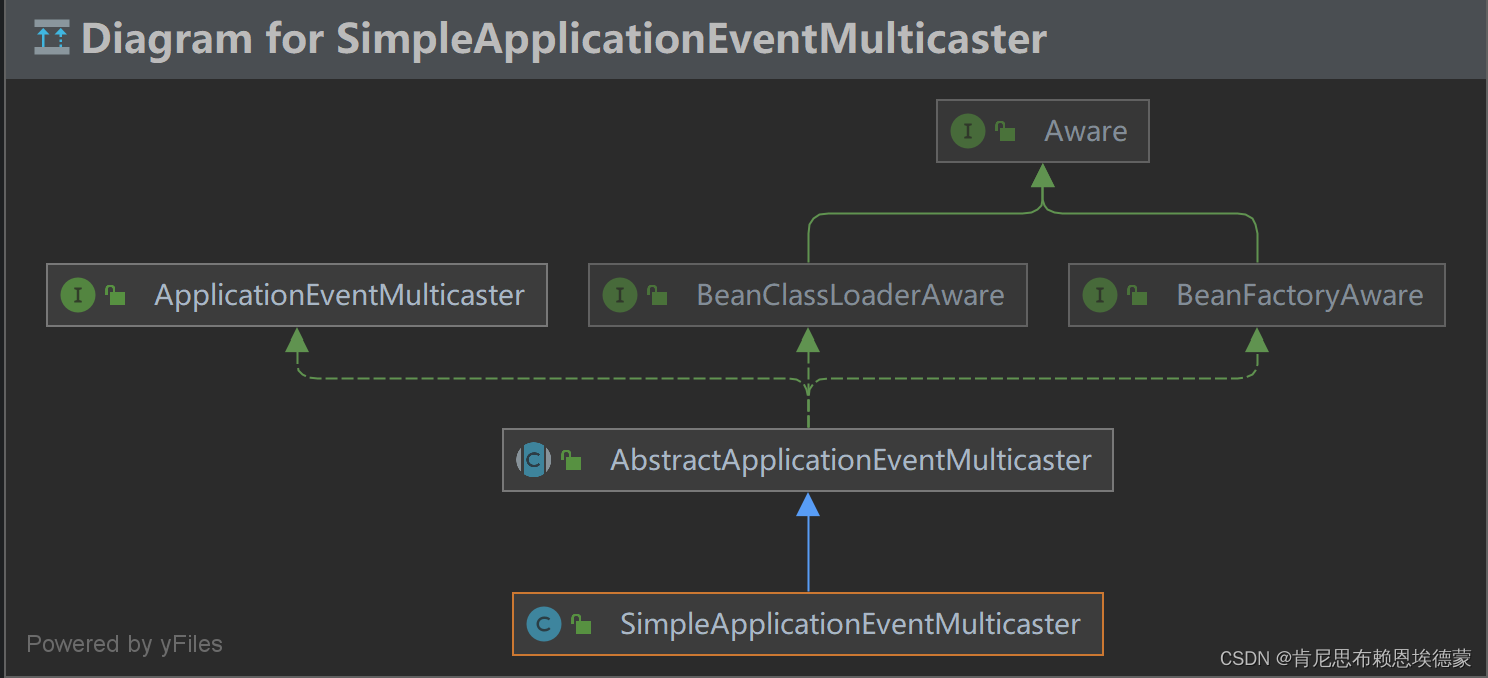
2.2 事件传播轨迹
// org.springframework.context.event.SimpleApplicationEventMulticaster#multicastEvent(org.springframework.context.ApplicationEvent)
@Override
public void multicastEvent(ApplicationEvent event) {
// step into ...
multicastEvent(event, resolveDefaultEventType(event));
}
@Override
public void multicastEvent(final ApplicationEvent event, @Nullable ResolvableType eventType) {
ResolvableType type = (eventType != null ? eventType : resolveDefaultEventType(event));
Executor executor = getTaskExecutor();
for (ApplicationListener<?> listener : getApplicationListeners(event, type)) {
// 支持线程池中调用
if (executor != null) {
executor.execute(() -> invokeListener(listener, event));
}
else {
invokeListener(listener, event);
}
}
}
/**
* Invoke the given listener with the given event.
* @param listener the ApplicationListener to invoke
* @param event the current event to propagate
* @since 4.1
*/
protected void invokeListener(ApplicationListener<?> listener, ApplicationEvent event) {
ErrorHandler errorHandler = getErrorHandler();
if (errorHandler != null) {
try {
// step into ...
doInvokeListener(listener, event);
}
catch (Throwable err) {
errorHandler.handleError(err);
}
}
else {
doInvokeListener(listener, event);
}
}
// org.springframework.context.event.SimpleApplicationEventMulticaster#doInvokeListener
private void doInvokeListener(ApplicationListener listener, ApplicationEvent event) {
try {
// ApplicationListener.onApplicationEvent()
listener.onApplicationEvent(event);
}
catch (ClassCastException ex) {
String msg = ex.getMessage();
if (msg == null || matchesClassCastMessage(msg, event.getClass())) {
// Possibly a lambda-defined listener which we could not resolve the generic event type for
// -> let's suppress the exception and just log a debug message.
Log logger = LogFactory.getLog(getClass());
if (logger.isTraceEnabled()) {
logger.trace("Non-matching event type for listener: " + listener, ex);
}
}
else {
throw ex;
}
}
}
3. SpringApplicationRunListeners
- 提供了多个生命周期的回调方法
- 内部维护了多个 SpringApplicationRunListener
- SpringApplicationRunListener会在各个生命周期中调用 Multicaster 传播事件(回调监听器的方法)
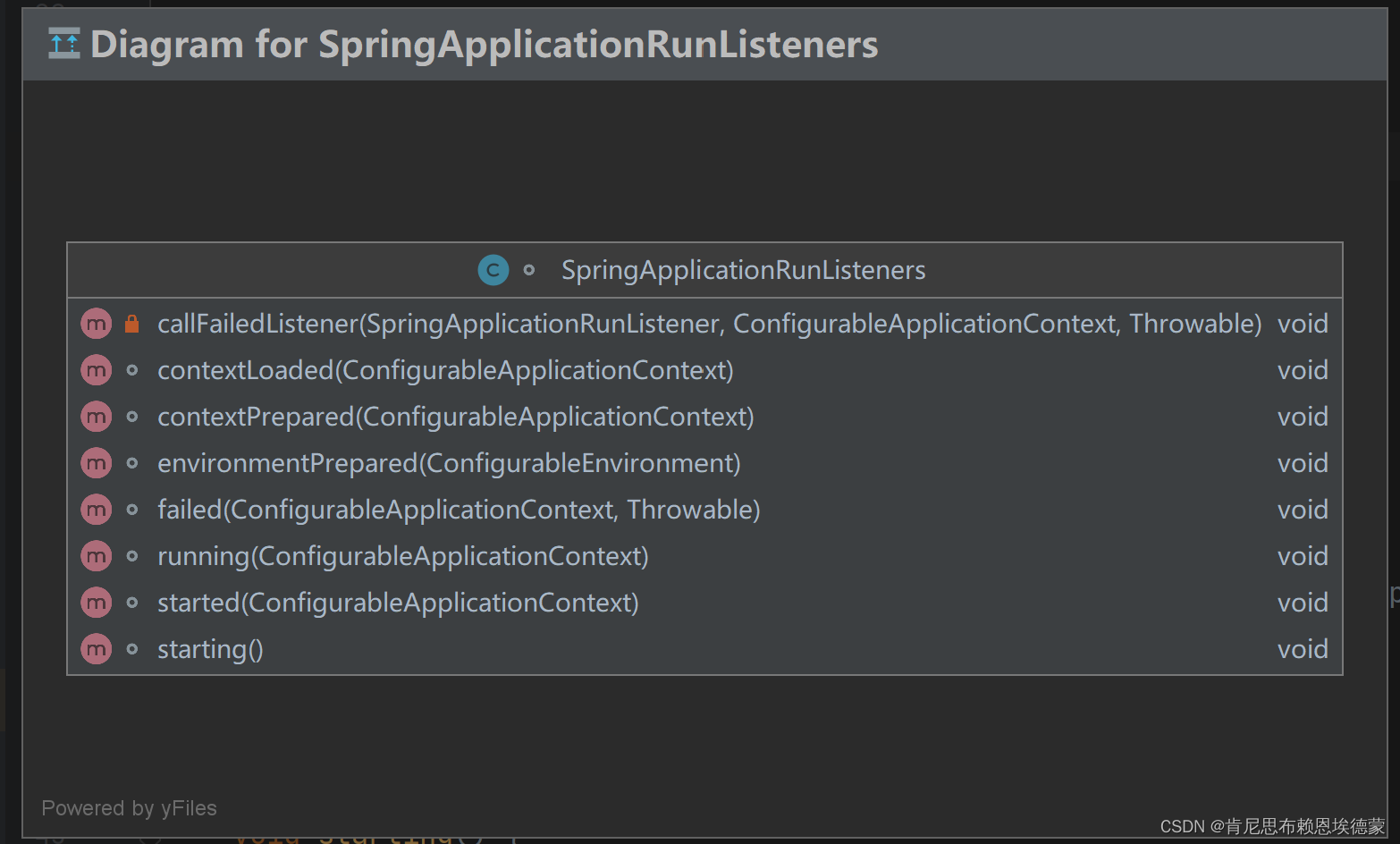
3.1 注册
// org.springframework.boot.SpringApplication#run(java.lang.String...)
public ConfigurableApplicationContext run(String... args) {
StopWatch stopWatch = new StopWatch();
stopWatch.start();
ConfigurableApplicationContext context = null;
Collection<SpringBootExceptionReporter> exceptionReporters = new ArrayList<>();
configureHeadlessProperty();
// step into ...
SpringApplicationRunListeners listeners = getRunListeners(args);
listeners.starting();
try {
ApplicationArguments applicationArguments = new DefaultApplicationArguments(args);
ConfigurableEnvironment environment = prepareEnvironment(listeners, applicationArguments);
configureIgnoreBeanInfo(environment);
Banner printedBanner = printBanner(environment);
context = createApplicationContext();
// step into SpringBootExceptionReporter.java ...
// 顺带说一下,ExceptionReporters 也是滴
exceptionReporters = getSpringFactoriesInstances(SpringBootExceptionReporter.class,
new Class[] { ConfigurableApplicationContext.class }, context);
prepareContext(context, environment, listeners, applicationArguments, printedBanner);
refreshContext(context);
afterRefresh(context, applicationArguments);
stopWatch.stop();
if (this.logStartupInfo) {
new StartupInfoLogger(this.mainApplicationClass).logStarted(getApplicationLog(), stopWatch);
}
listeners.started(context);
callRunners(context, applicationArguments);
}
catch (Throwable ex) {
handleRunFailure(context, ex, exceptionReporters, listeners);
throw new IllegalStateException(ex);
}
try {
listeners.running(context);
}
catch (Throwable ex) {
handleRunFailure(context, ex, exceptionReporters, null);
throw new IllegalStateException(ex);
}
return context;
}
-------------------------
// org.springframework.boot.SpringApplication#getRunListeners
private SpringApplicationRunListeners getRunListeners(String[] args) {
Class<?>[] types = new Class<?>[] { SpringApplication.class, String[].class };
// step into ...
// 不如,看看 RunListeners 的内部结构表
return new SpringApplicationRunListeners(logger,
// 这里逻辑重复,就不step into 了
getSpringFactoriesInstances(SpringApplicationRunListener.class, types, this, args));
}
---------------------
// spring.boot 才有的
package org.springframework.boot;
class SpringApplicationRunListeners {
// step into ...
private final List<SpringApplicationRunListener> listeners;
SpringApplicationRunListeners(Log log, Collection<? extends SpringApplicationRunListener> listeners) {
this.log = log;
this.listeners = new ArrayList<>(listeners);
}
// 下面的方法都是大差不差的: 在各个声明周期中,调用,循环执行 runListener 对应的钩子方法
void starting() {
for (SpringApplicationRunListener listener : this.listeners) {
listener.starting();
}
}
void environmentPrepared(ConfigurableEnvironment environment) {
for (SpringApplicationRunListener listener : this.listeners) {
listener.environmentPrepared(environment);
}
}
void contextPrepared(ConfigurableApplicationContext context) {
for (SpringApplicationRunListener listener : this.listeners) {
listener.contextPrepared(context);
}
}
void contextLoaded(ConfigurableApplicationContext context) {
for (SpringApplicationRunListener listener : this.listeners) {
listener.contextLoaded(context);
}
}
void started(ConfigurableApplicationContext context) {
for (SpringApplicationRunListener listener : this.listeners) {
listener.started(context);
}
}
void running(ConfigurableApplicationContext context) {
for (SpringApplicationRunListener listener : this.listeners) {
listener.running(context);
}
}
void failed(ConfigurableApplicationContext context, Throwable exception) {
for (SpringApplicationRunListener listener : this.listeners) {
callFailedListener(listener, context, exception);
}
}
private void callFailedListener(SpringApplicationRunListener listener, ConfigurableApplicationContext context,
Throwable exception) {
try {
listener.failed(context, exception);
}
catch (Throwable ex) {
if (exception == null) {
ReflectionUtils.rethrowRuntimeException(ex);
}
if (this.log.isDebugEnabled()) {
this.log.error("Error handling failed", ex);
}
else {
String message = ex.getMessage();
message = (message != null) ? message : "no error message";
this.log.warn("Error handling failed (" + message + ")");
}
}
}
}
------------------
package org.springframework.boot.context.event;
// SpringApplicationRunListener 暂时只有这个实现类
public class EventPublishingRunListener implements SpringApplicationRunListener, Ordered {
private final SpringApplication application;
private final String[] args;
// 懂了
// RunListener 监听到 springApplication 的某一生命周期时,借助这个广播事件,给ApplicationListeners
private final SimpleApplicationEventMulticaster initialMulticaster;
public EventPublishingRunListener(SpringApplication application, String[] args) {
this.application = application;
this.args = args;
// 事件广播器 也是构造的时候,顺带初始化的!!!
this.initialMulticaster = new SimpleApplicationEventMulticaster();
for (ApplicationListener<?> listener : application.getListeners()) {
this.initialMulticaster.addApplicationListener(listener);
}
}
@Override
public int getOrder() {
return 0;
}
@Override
public void starting() {
this.initialMulticaster.multicastEvent(new ApplicationStartingEvent(this.application, this.args));
}
@Override
public void environmentPrepared(ConfigurableEnvironment environment) {
this.initialMulticaster
.multicastEvent(new ApplicationEnvironmentPreparedEvent(this.application, this.args, environment));
}
@Override
public void contextPrepared(ConfigurableApplicationContext context) {
this.initialMulticaster
.multicastEvent(new ApplicationContextInitializedEvent(this.application, this.args, context));
}
@Override
public void contextLoaded(ConfigurableApplicationContext context) {
for (ApplicationListener<?> listener : this.application.getListeners()) {
if (listener instanceof ApplicationContextAware) {
((ApplicationContextAware) listener).setApplicationContext(context);
}
context.addApplicationListener(listener);
}
this.initialMulticaster.multicastEvent(new ApplicationPreparedEvent(this.application, this.args, context));
}
@Override
public void started(ConfigurableApplicationContext context) {
context.publishEvent(new ApplicationStartedEvent(this.application, this.args, context));
AvailabilityChangeEvent.publish(context, LivenessState.CORRECT);
}
@Override
public void running(ConfigurableApplicationContext context) {
context.publishEvent(new ApplicationReadyEvent(this.application, this.args, context));
AvailabilityChangeEvent.publish(context, ReadinessState.ACCEPTING_TRAFFIC);
}
@Override
public void failed(ConfigurableApplicationContext context, Throwable exception) {
ApplicationFailedEvent event = new ApplicationFailedEvent(this.application, this.args, context, exception);
if (context != null && context.isActive()) {
// Listeners have been registered to the application context so we should
// use it at this point if we can
context.publishEvent(event);
}
else {
// An inactive context may not have a multicaster so we use our multicaster to
// call all of the context's listeners instead
if (context instanceof AbstractApplicationContext) {
for (ApplicationListener<?> listener : ((AbstractApplicationContext) context)
.getApplicationListeners()) {
this.initialMulticaster.addApplicationListener(listener);
}
}
this.initialMulticaster.setErrorHandler(new LoggingErrorHandler());
this.initialMulticaster.multicastEvent(event);
}
}
private static class LoggingErrorHandler implements ErrorHandler {
private static final Log logger = LogFactory.getLog(EventPublishingRunListener.class);
@Override
public void handleError(Throwable throwable) {
logger.warn("Error calling ApplicationEventListener", throwable);
}
}
}
Multicaster 与 ApplicationListener、 RunListener、RunListeners的关系
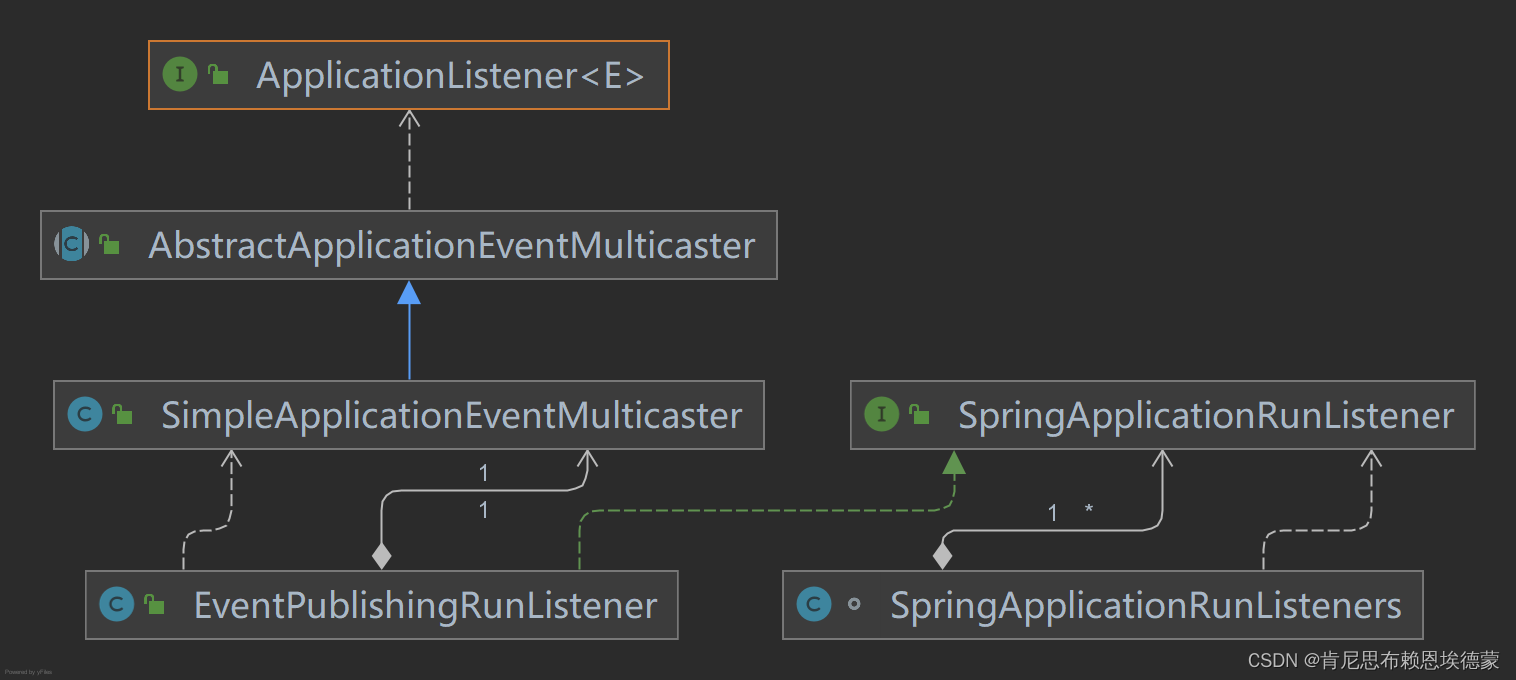
4. SpringBootExceptionReporter
同上,也是 spring.boot 特有的
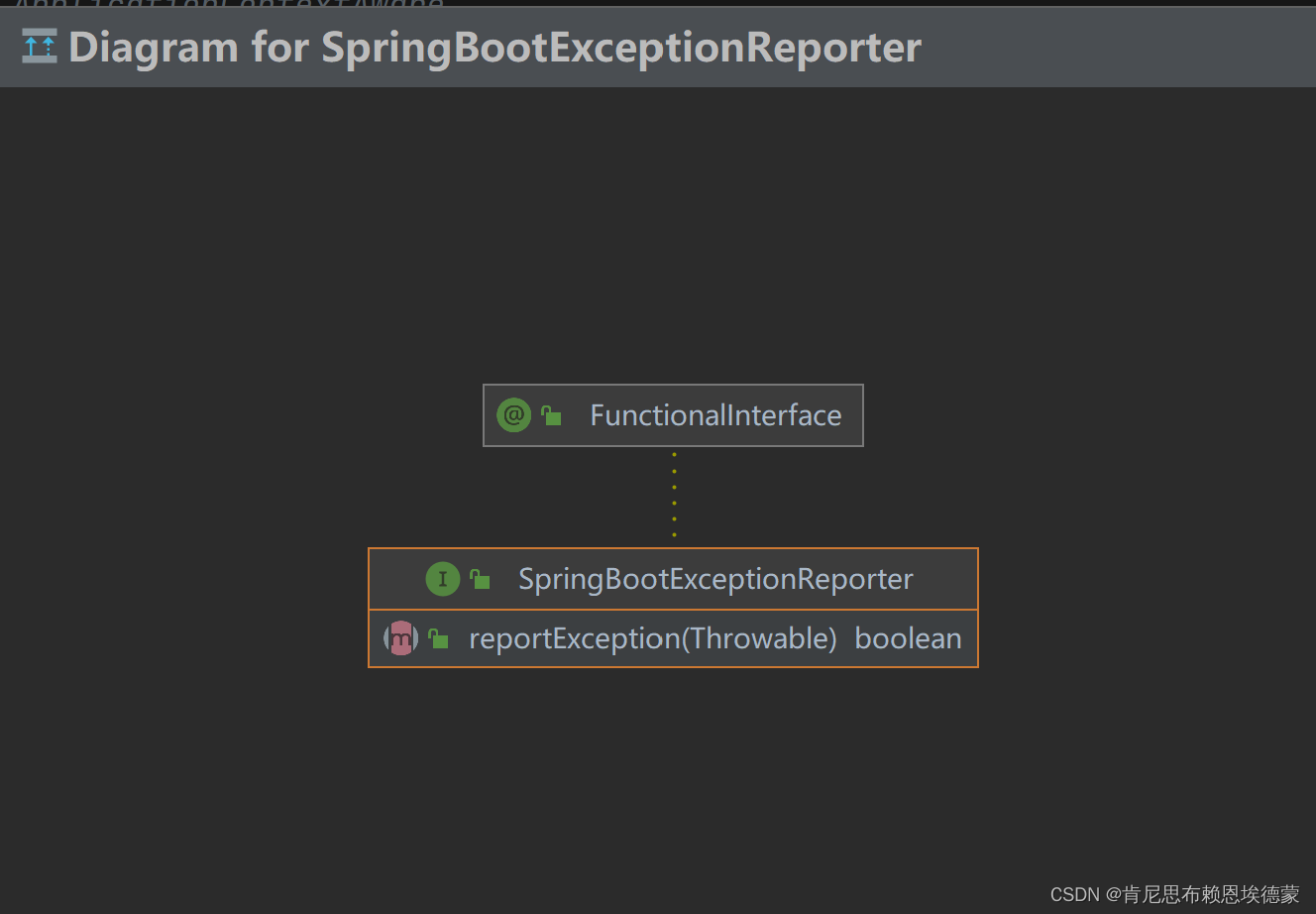
4.1 应用
// spring.boot 的
package org.springframework.boot.diagnostics;
/**
* Utility to trigger {@link FailureAnalyzer} and {@link FailureAnalysisReporter}
* instances loaded from {@code spring.factories}.
* <p>
* A {@code FailureAnalyzer} that requires access to the {@link BeanFactory} in order to
* perform its analysis can implement {@code BeanFactoryAware} to have the
* {@code BeanFactory} injected prior to {@link FailureAnalyzer#analyze(Throwable)} being
* called.
*
* @author Andy Wilkinson
* @author Phillip Webb
* @author Stephane Nicoll
*/
// SpringBootExceptionReporter 暂时仅有这个实现类
final class FailureAnalyzers implements SpringBootExceptionReporter {
// step into ..
// 逻辑在这里,目前还不知道干嘛的
private final List<FailureAnalyzer> analyzers;
FailureAnalyzers(ConfigurableApplicationContext context) {
this(context, null);
}
FailureAnalyzers(ConfigurableApplicationContext context, ClassLoader classLoader) {
Assert.notNull(context, "Context must not be null");
this.classLoader = (classLoader != null) ? classLoader : context.getClassLoader();
this.analyzers = loadFailureAnalyzers(this.classLoader);
prepareFailureAnalyzers(this.analyzers, context);
}
private List<FailureAnalyzer> loadFailureAnalyzers(ClassLoader classLoader) {
List<String> analyzerNames = SpringFactoriesLoader.loadFactoryNames(FailureAnalyzer.class, classLoader);
List<FailureAnalyzer> analyzers = new ArrayList<>();
for (String analyzerName : analyzerNames) {
try {
Constructor<?> constructor = ClassUtils.forName(analyzerName, classLoader).getDeclaredConstructor();
ReflectionUtils.makeAccessible(constructor);
analyzers.add((FailureAnalyzer) constructor.newInstance());
}
catch (Throwable ex) {
logger.trace(LogMessage.format("Failed to load %s", analyzerName), ex);
}
}
AnnotationAwareOrderComparator.sort(analyzers);
return analyzers;
}
private void prepareFailureAnalyzers(List<FailureAnalyzer> analyzers, ConfigurableApplicationContext context) {
for (FailureAnalyzer analyzer : analyzers) {
prepareAnalyzer(context, analyzer);
}
}
private void prepareAnalyzer(ConfigurableApplicationContext context, FailureAnalyzer analyzer) {
if (analyzer instanceof BeanFactoryAware) {
((BeanFactoryAware) analyzer).setBeanFactory(context.getBeanFactory());
}
if (analyzer instanceof EnvironmentAware) {
((EnvironmentAware) analyzer).setEnvironment(context.getEnvironment());
}
}
@Override
public boolean reportException(Throwable failure) {
FailureAnalysis analysis = analyze(failure, this.analyzers);
return report(analysis, this.classLoader);
}
private FailureAnalysis analyze(Throwable failure, List<FailureAnalyzer> analyzers) {
for (FailureAnalyzer analyzer : analyzers) {
try {
FailureAnalysis analysis = analyzer.analyze(failure);
if (analysis != null) {
return analysis;
}
}
catch (Throwable ex) {
logger.debug(LogMessage.format("FailureAnalyzer %s failed", analyzer), ex);
}
}
return null;
}
private boolean report(FailureAnalysis analysis, ClassLoader classLoader) {
List<FailureAnalysisReporter> reporters = SpringFactoriesLoader.loadFactories(FailureAnalysisReporter.class,
classLoader);
if (analysis == null || reporters.isEmpty()) {
return false;
}
for (FailureAnalysisReporter reporter : reporters) {
reporter.report(analysis);
}
return true;
}
}
------------
package org.springframework.boot.diagnostics;
// 这个实现类也忒多
/**
* A {@code FailureAnalyzer} is used to analyze a failure and provide diagnostic
* information that can be displayed to the user.
* 渣翻: 用来解析失败,并且以某种形式反馈给用户
*
* @author Andy Wilkinson
* @since 1.4.0
*/
@FunctionalInterface
public interface FailureAnalyzer {
/**
* Returns an analysis of the given {@code failure}, or {@code null} if no analysis
* was possible.
* @param failure the failure
* @return the analysis or {@code null}
*/
FailureAnalysis analyze(Throwable failure);
}
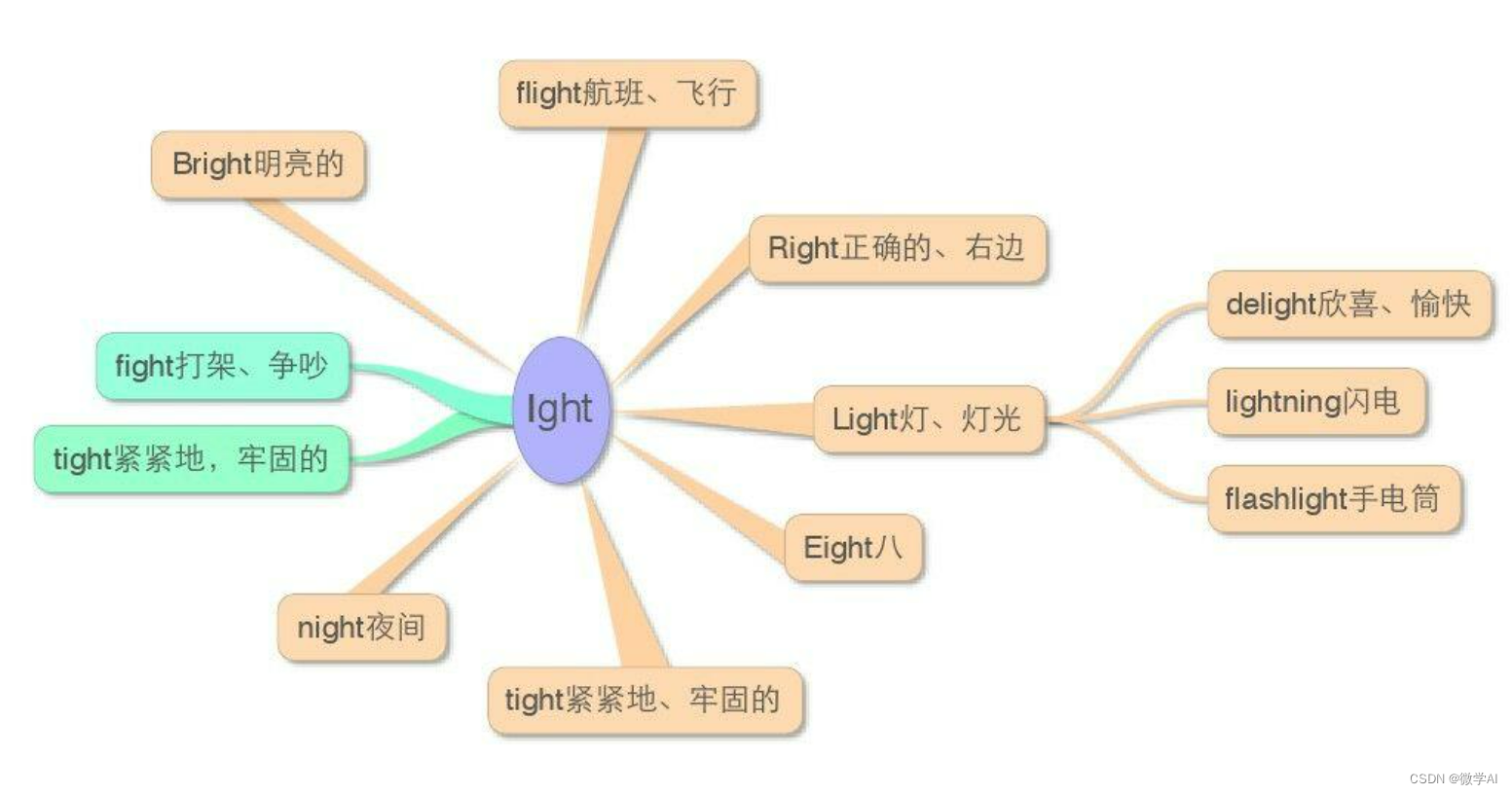
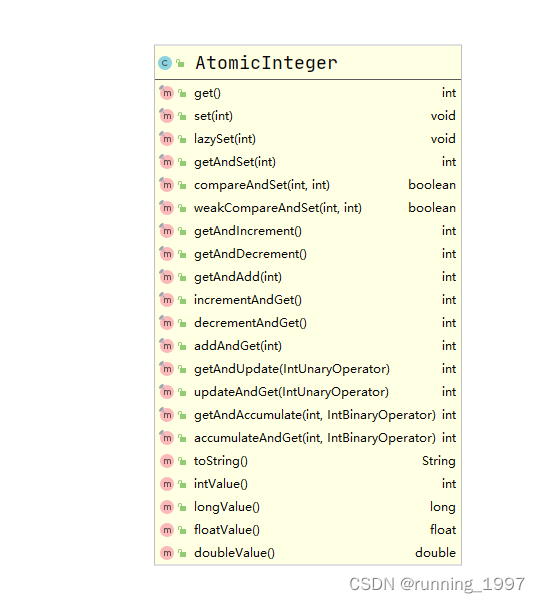

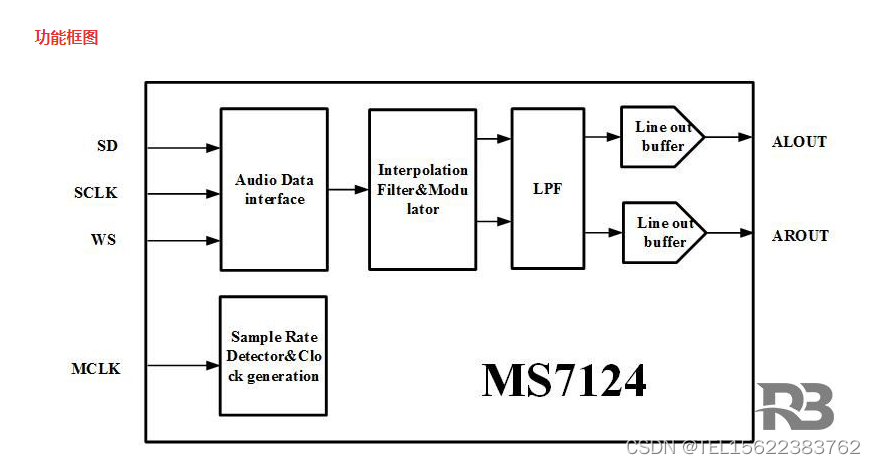


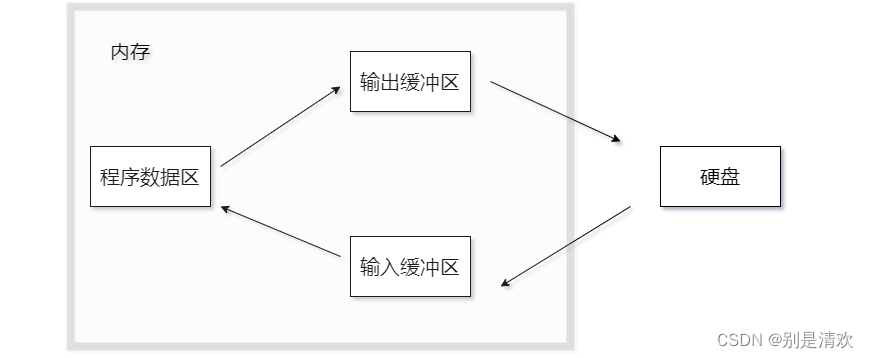
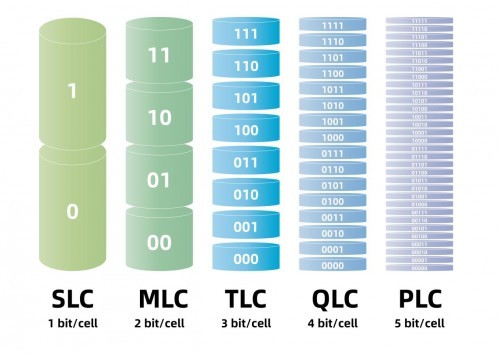



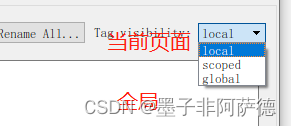


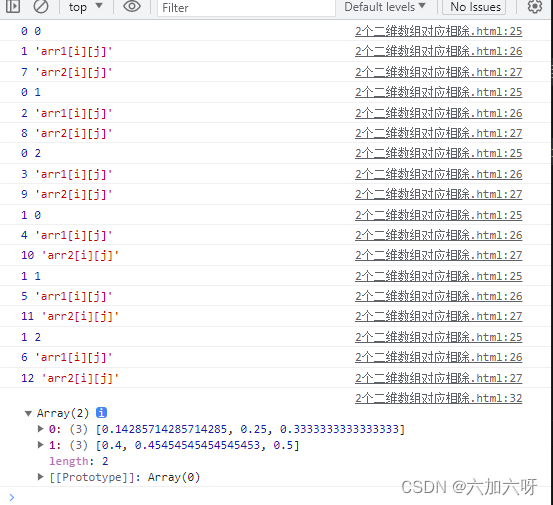
![[SWPUCTF 2021 新生赛] ez_unserialize](https://img-blog.csdnimg.cn/6a24b01a643c40aab6538eabd76dba7e.png)
